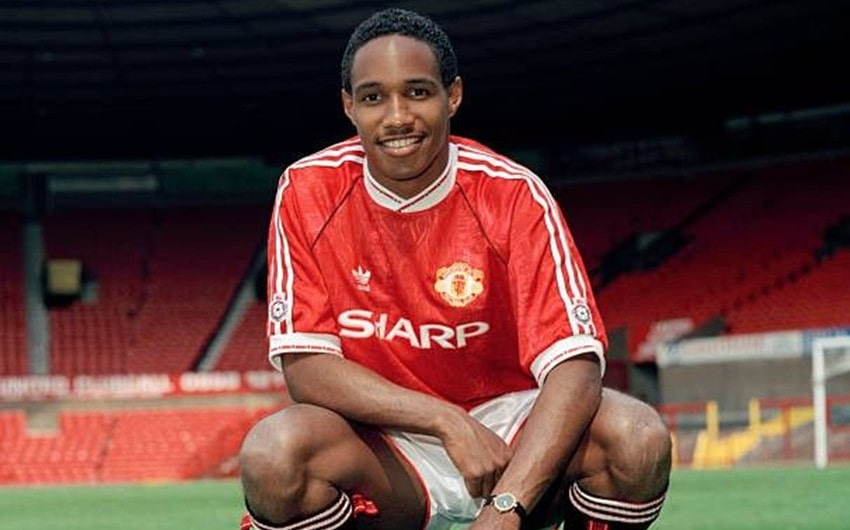Paul Ince Net Worth and How He Built Wealth On and Off the Pitch
If you’ve followed English football over the past few decades, you’ve likely heard of Paul Ince—and you may have even wondered about Paul Ince net worth. A midfield powerhouse during his playing days and a trailblazing manager later on, Ince didn’t just leave a legacy on the field—he also built a solid financial foundation through smart career moves and ongoing involvement in football. Let’s take a closer look at where his money came from and how he maintains his wealth today.
Who Is Paul Ince?
You can’t talk about 1990s English football without mentioning Paul Ince. Born in Ilford, London in 1967, he rose through the ranks of West Ham United before making a name for himself at Manchester United. As a central midfielder, he brought a mix of grit, intelligence, and leadership to every team he joined.
Nicknamed “The Guv’nor” for his commanding presence, Ince played for several top clubs, including Manchester United, Inter Milan, Liverpool, and Wolverhampton Wanderers. He earned over 50 caps for England and became the first Black captain of the national team—an achievement that sealed his place in football history.
But Paul Ince didn’t stop influencing the game after retiring as a player. He transitioned into management and became one of the first Black British managers in the Premier League, guiding teams like Blackburn Rovers, Milton Keynes Dons, and Reading FC. His ability to adapt and stay relevant in a changing football landscape has helped him maintain both his reputation and financial standing.
Breaking Down Paul Ince Net Worth in 2025
So how much is Paul Ince net worth today? As of 2025, estimates place his net worth at approximately $10 million to $12 million. That figure reflects his decades-long career as a top-tier footballer, multiple stints as a manager, and continued media presence.
This isn’t in the same league as global football icons like David Beckham or Cristiano Ronaldo, but it’s still an impressive number considering the era in which Ince played. During the 1990s, salaries were far more modest compared to today’s astronomical figures. What sets Ince apart is how he maximized every opportunity—on the field, in coaching, and in the media.
His wealth isn’t built on flash or endorsements alone. It’s the product of steady, long-term work across multiple aspects of the football industry.
Career Earnings as a Player
Manchester United and the Rise to Fame
You could say Ince’s financial journey really kicked off at Manchester United. He joined the club in 1989 and quickly became a vital part of Sir Alex Ferguson’s midfield. During his time at Old Trafford, he won two Premier League titles, two FA Cups, and the European Cup Winners’ Cup.
While football salaries in the late ’80s and early ’90s weren’t what they are today, players like Ince were still very well-compensated by the standards of the time. At Manchester United, he reportedly earned between £5,000 to £10,000 per week—solid figures for that era.
A Big Move to Inter Milan
Ince made headlines again in 1995 when he transferred to Inter Milan. This move not only broadened his horizons but also boosted his paycheck. Italian clubs at the time were offering some of the best wages in world football, and Ince reportedly earned more than £1.5 million per year during his two seasons in Serie A.
His time in Italy also expanded his brand internationally and proved that English players could thrive abroad—something that was still relatively uncommon at the time.
Liverpool and Later Playing Years
Returning to England in 1997, Ince joined Liverpool and continued to perform at a high level. He later played for Middlesbrough and Wolverhampton Wanderers. Although these years didn’t match the financial highs of Inter Milan, they allowed him to extend his career and earnings well into his 30s.
In total, Ince played over 500 club matches and earned significant appearance bonuses, goal incentives, and loyalty clauses that added to his financial profile.
Managerial Roles and Continued Football Involvement
From the Pitch to the Dugout
After hanging up his boots, Ince wasted no time transitioning into management. He began his coaching career with Macclesfield Town in 2006, rescuing the club from relegation. From there, he moved to Milton Keynes Dons, where he won the Football League Trophy and earned promotion—both of which raised his stock.
In 2008, he became the first Black British manager in the Premier League when he took charge of Blackburn Rovers. Although that tenure was short-lived, it was groundbreaking. He later managed Notts County, Blackpool, and Reading FC, among others.
These roles didn’t just provide a salary—they strengthened his legacy and kept him relevant in an industry that often cycles through talent quickly. Managerial salaries in the lower leagues range from £100,000 to £500,000 per year, and Ince’s name recognition likely placed him at the higher end of that spectrum.
TV Appearances and Commentary
Ince is also a familiar face on football talk shows and match commentary panels. Networks like Sky Sports, BT Sport, and BBC have featured him for pre- and post-match analysis. These media appearances provide a steady stream of income and help maintain his public profile.
Football pundits at his level typically earn between £50,000 to £200,000 per year depending on the frequency of appearances and the size of the network. It’s not just about money—it’s also about staying visible and relevant in a competitive industry.
Personal Life and Financial Choices
Paul Ince hasn’t been one to flaunt his wealth. You don’t see him in tabloid headlines for outrageous purchases or luxury excess. His lifestyle appears grounded, with a focus on family and football. His son, Tom Ince, is also a professional footballer, and Paul has even coached him during his managerial stints.
That kind of generational involvement in football shows a commitment to legacy, not just earnings. It’s likely that Ince has invested wisely over the years, choosing real estate or long-term savings over risky ventures. His continued roles in management and media suggest he values sustainability over short-term windfalls.
Why Paul Ince’s Net Worth Tells a Bigger Story
Paul Ince net worth isn’t just a number—it’s a reflection of a pioneering career. From breaking racial barriers to succeeding in multiple roles across football, he’s proved that determination and adaptability pay off.
Ince managed to build wealth not just from talent but from staying relevant in an ever-evolving industry. His financial story is less about overnight riches and more about long-term value—a model many athletes today could learn from.
Featured image source: Pinterest






